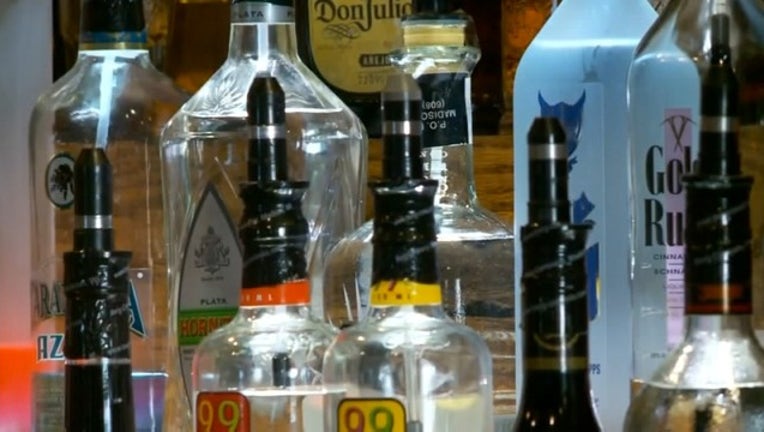Fraternity group votes to ban hard alcohol at houses, events

FILE ART - Hard alcohol
INDIANAPOLIS (AP) - Most U.S. and Canadian fraternities have one year to ban vodka, tequila and other hard alcohol under a rule adopted during the recent annual meeting of their trade association, the group announced Tuesday.
In "a near-unanimous vote" on Aug. 27, the 66 international and national men's fraternities of the North-American Interfraternity Conference adopted the rule prohibiting hard alcohol with more than 15 percent alcohol by volume from fraternity chapters and events unless served by licensed third-party vendors, the group said. The member fraternities have until Sept. 1, 2019, to implement the rule across their more than 6,100 chapters on 800 campuses.
The rule adoption follows the alcohol-related deaths last year of fraternity pledges at Louisiana State University and Penn State University. In 2016, following the high-profile sexual assault case of former Stanford swimmer Brock Turner, the university banned hard alcohol for all undergraduates living on campus, as well as on-campus parties.
Alcohol abuse and "its serious consequences endanger" fraternities' core values of brotherhood, personal development and providing a community of support, said Judson Horras, president and CEO of the Carmel, Indiana-based conference.
"This action shows fraternities' clear commitment and leadership to further their focus on the safety of members and all in our communities," Horras said.
The Interfraternity Council at Purdue University in West Lafayette, Indiana, voted in February 2015 to ban hard liquor from fraternity properties and all chapter events.
Seth Gutwein, the current Purdue IFC president, said the result has been "a positive shift in our culture when it comes to the health and safety of our members and guests."
"With all NIC fraternities implementing this critical change, it will provide strong support for fraternities to move as one to make campus communities safer," Gutwein said in a NIC news release.
The NIC said the new rule follows the adoption of other alcohol-related initiatives in the past year, including a conferencewide adoption of good-Samaritan medical policies, piloting further measures to reduce alcohol, and advocating for stronger anti-hazing laws.
KTVU contributed to this report.

